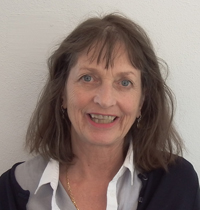What is a Registered Engineering Associate (REA)?
A Registered Engineering Associate (REA) is an experienced senior engineering technician / technologist that has been acknowledged with an internationally recognised credential.
They have:
- Accredited under the Engineering Associates Act (1961), an Act of over 60 years standing
- Academic qualification equivalent to NZCE or NZ Diploma in Engineering
- Time proven track record of practical engineering competency and supervisory experience
- Demonstrated ability to exercise sound engineering principles and judgement
They are required to:
- Work ethically within the limit of their skills and competencies
- Act in the public interest especially in matters of Health and Safety, the protection of life, and the well-being of the community
- Recognise the need for sustainable management of resources and minimise adverse effects on the environment
- Develop their knowledge and competence on a continuing basis. They can have this assessed on a voluntary basis under REAcap
The Value of the REA Credential
The REA credential provides considerable value to the public, employers, the economy and the recipients.
Value to Public:
- Provides registration and standards for engineering technicians and technologists
- Is a statutory mark of quality
- Encourages life-long education and competency development
Value to Employers:
- Provides a time-tested benchmark, internationally -recognised
- Establishes a hierarchy of delegation levels for management, quality and cost control
- Reduces risk with greater control and accountability in processes
- Matches workplace tasks against personnel competence experience
- Fosters ethical standards in industry
- Provides bases for career pathways, training goals and succession planning
Value to Economy:
- Provides time-proven robust registration system
- Encourages technical education and career development
- Enhances work place skills
- Recognises and encourages experience-based learning & expertise
- Establishes workplace structure & succession pathways
- Benchmarks across industries to enable skills transfer and cross-pollination
- Recognises prior learning for immigrants to Aotearoa New Zealand
Value to REA:
- Structures career development
- Encourages on-going learning through REAcap
- Provides an internattionally recongised credential
Draughting Career Path
An outline of a typical engineering technician and technologist career path is illustrated in the accompanying graphic
Code of Ethics for Registered Engineering Associates
As part of the registration, the Engineering Associates Registration Board expects all REAs to commit to the responsibilities and obligations listed in the Code of Ethics, as follows:
In undertaking their engineering activities, Registered Engineering Associates shall
- Promote and maintain efficiency, good management, proper conduct, high ideals of courtesy and personal integrity, with understanding and cooperation between themselves and others
- Uphold the dignity, standing and reputation of REAs and other engineering professionals, and promote their interests, integrity, status, and welfare
- Not be involved in illegal, dishonorable, improper and objectionable practices
- Commit to the ongoing development of all members of the engineering profession, and to continuous improvement in knowledge and competence
- Apply their skills and knowledge ethically and in a spirit of fidelity and fairness to their clients or employers for whom they act, and work within their areas of competence
- Uphold the public interest, especially in matters of health and safety and the protection of life and the well-being of the community
- Recognise the need for sustainable management of resources and to minimize adverse effects on the environment
The Engineering Associates Act contains provisions for addressing complaints about REAs.
EARB Engineering Occupations
BUILDING
BUILDING| Building Construction | ||
|---|---|---|
| Cost Control | Management | Technology |
| Planning | Health & Safety | |
Building Design |
||
| Acoustics | Exterior | Architecture |
| Interior | ||
Building Control |
||
| Consenting | Inspection & Sign-off | IQP’s |
Building Services |
||
| HVAC | Horizontal Infrastructure | Fire Prevention |
| Hydraulics | Power | Fire Protection |
| Lighting | Security | Healthcare |
| Management Systems | Vertical Transport |
ENGINEERING
ENGINEERING| Communication Engineering | ||
|---|---|---|
| Data | Network Distribution | Image |
| Voice | ||
| Radio | ||
| Telecommunications | ||
Civil Engineering |
||
| Asphalt Technology | Marine | Stormwater Drainage |
| Concrete Production | Materials Testing | Traffic |
| Construction Technology | Rail | Transportation Systems and Planning |
| Geotechnical | Roading (rural, urban and highways) | Wastewater Collection |
| Infrastructure Asset Management | Soil Mechanics | Water Reticulation |
Electrical Engineering |
||
| Commercial Design | Machinery Design | Technology |
| Construction | Physics | Systems Design |
| Industrial Control | Power Generation and Distribution | |
Electronic Engineering |
||
| Automation | Electromechanical | Microelectronics |
| Avionics | Industrial Control | Robotics |
| Computer Control | Instrumentation | Technology |
| Audio | ||
Forest management Engineering |
||
| Management | Technology | Wood Products Manufacturing |
| Measurement | Pulp and Paper Manufacturing | |
Gas and Petroleum Engineering |
||
| Exploration | Geological | Resource Planning |
| Extraction | Geophysical | Technology |
| Processing and Production | Organic Chemistry | Transmission & Distribution |
Industrial Engineering |
||
| Asset Management | Loss Prevention and Management | Project Management |
| Energy Systems | Manufacturing Technology | Technology |
| Technical Management & Servicing | Occupational Health and Safetyy | Quality Assurance and Control |
| Fire Prevention | Operations Management | Process Control |
Information Technology Engineering |
||
| Software Engineering | Information Systems | System Engineering |
| System Architecture | ||
| Programming | ||
Aviation |
||
| Aeronautical | Aerospace | |
Mechanical Engineering |
||
| Materials Handling | Rigging | Refrigeration |
| Mobile Equipment | Robotics | Marine |
| Automotive Manufacturing | Naval Architecture | Technology |
| Detailed Mechanical Design | Power Engineering | Applied Fields |
| Fluid Power | Process Piping | Tool and Die Design |
| Machine Design | Production Engineering | |
Mining Engineering |
||
| Exploration | Geophysical | Resource Planning |
| Extraction | Inspection | Technology |
| Geology | Processing and Production | |
Structural Engineering |
||
| Materials Testing | Steel Detailing | Concrete Mix Design |
| Steel Fabrication |
SCIENCE
SCIENCE| Biomedical Science | ||
|---|---|---|
| Biomedical Engineering | Laboratory Testing | Physiology |
Chemical Science |
||
| Applied Chemistry / Technology | Food Processing and Technology | Polymers (plastics) |
| Corrosion & Electrochemistry | Industrial Chemistry | |
| Drug Processing | Industrial Hygiene | |
Environmental Science |
||
| Agricultural Management | Landscape Architecture | Solid-waste Management |
| Agricultural Technology | Natural Resources (air, water & land) | Wastewater Treatment |
| Planning (urban and rural) | Water Treatment | Hydrology |
| Biotechnology | Pollution Control | Protection and Management |
Geomatic Science |
||
| Cadastral Surveying | Geospatial | Photogrammetry |
| Construction Surveying | GIS (Geographic Info. Systems) | Remote Sensing |
| Geodesic | Hydrography | Survey Technology |
Metallurgy Science |
||
| Extractive | Metallurgical Technology | Welding |
| Geoscience | Physical Metallurgy |
The Engineering Associates Act and The Engineering Associates Registration Board
The EA Act was passed in 1961, effective from 1 Aril 1962. It established the EARB to register suitably qualified technicians and technologists working in many occupational areas. The Government department responsible for the Act is MBIE.
The Board Chair and two other members are appointed by the Minister of Building and Construction. Other members are nominated from some of the technical associations recognised under the Act. The Board carries out the governance function under the Act.
- Design Association of NZ
- Institute of Automotive Mechanical Engineers NZ
- NZ Electronics Institute
- NZ Institute of Gas Engineers
- NZ Institute of Healthcare Engineering Inc
- NZ Institute of Refrigeration, Heating and Air Conditioning Engineers
- Survey and Spatial NZ
The Act provides for the registration of individuals, and membership of one of these associations is not compulsory. There are many REAs who are not members of these associations, particularly in the local and national government sectors.
A Registrar is appointed by the Board to maintain the Register and to carry out the Board's
operational functions.
Members of the Engineering Associates Registration Board oversee the administration of the Act.
- Determining acceptable standards of academic and technical training, experience, responsibility and appropriate technical qualifications necessary for registration
- Confirming an applicant's eligibility for registration
- Supervising the maintenance of the Register of registered persons, the issuance of registration certificates and other records
Link to the EA Act 1961: Engineering Associates Act 1961
A Chronicle of the REA Credential
John Edgar has compiled a booklet issued in July 2018. It outlines the background to the Act and chronicles significant events with the Board and REAs. John was a Board member for 24 years and then Registrar for 20 years, an association of 44 years.
Board Appointments
| Name | Position | Nomination | Initial Appointment Date |
|---|---|---|---|
| Deborah Cranko | Chair | Ministerial | April 2020 * |
| Phil Huse-White REA | Deputy Chair | DANZ | March 2021 ** |
| Richard Dove | Member | NZIHE | August 2024 |
| Bruce Hurley REA | Member | NZ Electronics Institute | December 2014 |
| Colette McCartney | Member | Ministerial | September 2020 |
| Joanne Johnston | Member | S+SNZ | September 2020 |
| Danny Muthumala REA | Member | NZIGE | March 2018 |
| David Duffy | Member | IRHACE | February 2025 |
* Deborah Cranko has been a member since December 2012. She was Deputy Chair from February 2015 to
March 2020.
** Phil Huse-White has been a member since February 2020.
Profiles of Board Members
Deborah Cranko (Chair)
 Deborah has been a
Ministerial appointment since 2012. She is a registered practising architect working mainly in the
Wellington region. She holds B BSc and B Arch (hons) and is a Fellow of the NZIA Te Kāhui
Whaihanga. She has extensive governance experience in the building sector, within her
profession (NZRAB and NZACS), with the former BIA and is member of the Plumbers, Gasfitters and
Drainlayers Board. She has chaired and served on many architectural, school and community boards.
Deborah has been a
Ministerial appointment since 2012. She is a registered practising architect working mainly in the
Wellington region. She holds B BSc and B Arch (hons) and is a Fellow of the NZIA Te Kāhui
Whaihanga. She has extensive governance experience in the building sector, within her
profession (NZRAB and NZACS), with the former BIA and is member of the Plumbers, Gasfitters and
Drainlayers Board. She has chaired and served on many architectural, school and community boards.
In practice projects, the architectural practice team works daily across many sectors of
the construction industry, with commercial, residential and heritage projects. She works with REAs
and CPENG engineers including structural, geotechnical, mechanical, and electrical engineering, and
surveying and quantity surveyors. She founded a consultancy with both architects and structural
engineers in 1987.
Deborah was appointed Chair since April 2020 and was Deputy Chair from 2015. She is a
member of the Finance and Audit Committee.
Phil Huse-White (Deputy Chair)
 Phil was appointed
in February 2020 on the nomination of the Design Association of NZ (DANZ). Phil is qualified with
NZCE (Civil), holds REA and REAcap. Phil started his career as a civil draughting officer working on
major motorway projects. He later he moved to a smaller civil and structural engineering consultancy
where he progressed from staff engineer to Associate Director over 14 years. Phil established his
own civil consulting business in Auckland ten years ago.
Phil was appointed
in February 2020 on the nomination of the Design Association of NZ (DANZ). Phil is qualified with
NZCE (Civil), holds REA and REAcap. Phil started his career as a civil draughting officer working on
major motorway projects. He later he moved to a smaller civil and structural engineering consultancy
where he progressed from staff engineer to Associate Director over 14 years. Phil established his
own civil consulting business in Auckland ten years ago.
He recently worked with WaterCare in Auckland to ensure that REAs were included in the
final version of their Compliance Statement Policy for Producing Water and Wastewater
Infrastructure. Phil is keen to continue to work with other territorial authorities to ensure that
the REA is continued to be recognised as a valuable professional registration within the industry.
Phil was elected Deputy Chair in December 2020.
Richard Dove
 Richard was appointed in August 2024 on the nomination of the New Zealand Institute of
Healthcare Engineering (NZIHE). Richard has worked within Health Zealand | Te Whatu Ora
and its predecessors in engineering and management roles for the past 30 years. He is
currently National Manager of Health Technology Modernisation and Assessment.
Richard was appointed in August 2024 on the nomination of the New Zealand Institute of
Healthcare Engineering (NZIHE). Richard has worked within Health Zealand | Te Whatu Ora
and its predecessors in engineering and management roles for the past 30 years. He is
currently National Manager of Health Technology Modernisation and Assessment.
Richard’s initial education was at the University of Canterbury with BE (Hons) in Electrical
and Electronic Engineering. He then went on to gain a ME and his first exposure to the
medical uses of electronic engineering. He has since held multiple roles in the healthcare
system and commercial sectors using engineering to assist patient care. In his current role
he is part of the senior management team of the Health Technology Management team
tasked with end-to-end management of medical equipment throughout New Zealand’s public
healthcare system.
He brings significant governance experience in a similar field having been a Board Member
for thirteen years of the Australasian College of Physical Scientists and Engineers in
Medicine, culminating in three years as Board Chair.
Bruce Hurley
 Bruce was appointed in
December 2014 on the nomination of the NZ Electronics Institute where he serves as National
Secretary/Treasurer. He joined NZPO as a radio technician and qualified with a Radio Technician’s
Certificate, NZCE (Telecoms) and holds REA.
Bruce was appointed in
December 2014 on the nomination of the NZ Electronics Institute where he serves as National
Secretary/Treasurer. He joined NZPO as a radio technician and qualified with a Radio Technician’s
Certificate, NZCE (Telecoms) and holds REA.
He has a long career within the telecommunications industry with many technical and
management roles as the former NZ Post Office and into the new entities of Telecom and Spark. His
experience includes design and deployment of radio networks, field force management and commercial
relationship management.
Currently Bruce is Procurement Business Partner for Spark utilising his technical
knowledge to get best value for supplier spend.
Bruce is a member of the Staff Committee.
Joanne Johnston
 Jo was appointed in
September 2020 on the nomination of Survey and Spatial New Zealand. Jo qualified as B Surv from
University of Otago, is a Registered Professional Surveyor, a Licensed Cadastral Surveyor and
MS+SNZ.
Jo was appointed in
September 2020 on the nomination of Survey and Spatial New Zealand. Jo qualified as B Surv from
University of Otago, is a Registered Professional Surveyor, a Licensed Cadastral Surveyor and
MS+SNZ.
Jo has a 30 year career spanning both public and private sector. Her interest lies in
occupational regulation and leads the Survey and Spatial Examinations Committee. The Committee leads
policy and arranges competency examinations for the Cadastral Surveyors Licensing Board of New
Zealand for surveyors to become Licensed Cadastral Surveyors.
Jo has many working relationships in Government and the private sector providing advice
to Crown and Māori on Treaty Settlements, the Office of the Surveyor-General on Rule changes, Land
Information New Zealand with input into the enhanced Landonline system and local councils working
through subdivisional consents.
Jo encourages people with an interest in mathematics and the love of the outdoors to
consider surveying, engineering, or construction as a career.
Colette McCartney
 Colette (Ngāti Pāoa) has been a
ministerial appointment since September 2020. Colette is a registered practising architect working
mainly in the Waikato/Bay of Plenty region, based in Tauranga. Colette is a member of the staff committee.
Colette (Ngāti Pāoa) has been a
ministerial appointment since September 2020. Colette is a registered practising architect working
mainly in the Waikato/Bay of Plenty region, based in Tauranga. Colette is a member of the staff committee.
Colette’s 24 year career features a broad range of experience in commercial architecture
and interior design for award-winning firms in Sydney and London as well as at home in New Zealand.
She works effectively to deliver complex interior and architecture, fit out and refurbishment
projects for major clients. Colette graduated from Auckland University in 1999 with Bachelor of
Architecture (Hons), holds a Masters in Construction Management (Distinction) and is an Associate of
the NZIA Te Kāhui Whaihanga.
Colette’s role as Business Group Leader at GHD, means that she oversees a national team
of employees in Wellington and Auckland. Her role also entails leading projects for many Government
Departments including Ministry of Justice, ACC and NZ Police.
Danny Muthumala
 Danny was appointed in
March 2018 on the nomination by the NZ Institution of Gas Engineers (NZIGE). Danny is qualified with
NZCE (Civil) and holds REA.
Danny was appointed in
March 2018 on the nomination by the NZ Institution of Gas Engineers (NZIGE). Danny is qualified with
NZCE (Civil) and holds REA.
He has had a long career within the gas Industry undertaking a variety of technical and
management roles over the past 37 years. His career in the gas Industry began in 1983 with the
Natural Gas Corporation (NGC) in New Plymouth. In 1986 he joined the local gas distribution company
“City Gas” in New Plymouth and has continued his journey in the gas industry working for PowerCo Ltd
as a project engineer.
Danny is Treasurer and Grants Coordinator for the Sri Lanka Association of New Zealand
and volunteers at the NZ Translation Centre.
David Duffy
 David was appointed to the board March 2025, representing IRHACE.
David was appointed to the board March 2025, representing IRHACE.
David is a qualified Building Services engineer and Project Manager. Having worked in the engineering services industry and being a founder member of the NZIHVE in 1974, experienced in design, contracting and Facilities Maintenance support systems for clients in the commercial, healthcare, industrial and institutional facilities for both private and government groups. David also provided engineering studies to students groups at both Wellington Polytech and Massey Schools of Building for a number of years as a guest tutor. Experience included representation on a number of Standards NZ standards review boards representing industry and engineering associations for specific NZ Standards. During his time as technical manager to the ANZAC ship program for RNZN and RAN vessels procurement and technical compliance. Following many years as both a consultant and contractor he started his own consulting firm in 2011. As an independent David was engaged to investigate a number of projects with both technical and operational issues for a number of clients. With the range of experience he has a major interest in ensuring both practical and academic levels are in tune with client expectation and industry benchmarks for both trade delivery and design capability. David also has a keen interest in emerging technologies in the HVAC field due to the environmental impact such systems and services have on our daily lives.
David is REA NZCE (HVAC&R) and FTC (C&G). IRHACE. CIBSE. PMPI.
Profile of Registrar
Mark Harris
 Mark Harris REA became our new Board Registrar in January 2025 following the retirement of long-time Registrar Roger Woods REA.
Mark Harris REA became our new Board Registrar in January 2025 following the retirement of long-time Registrar Roger Woods REA.
Mark holds REA, CPEng, and IntPE. He is an electrical inspector, and has a professional engineering background in power systems, critical infrastructure and automation/control engineering. His career began as a trainee technician and progressed to consulting engineering practice and project management. He has held senior leadership and governance roles.
Throughout his career, Mark has worked to promote and advance engineering, learning, development and mentoring. He strongly advocates recognition of competence gained through work experience.